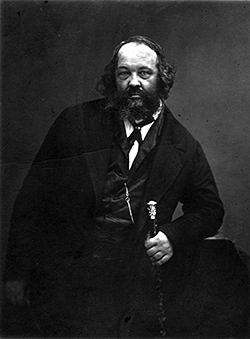The Russian Revolution. The Spanish Republic. The Paris Commune. The Ukrainian revolution. The Mexican Revolution. From the late 19th century until World War II, anarchists played a key role in these events and in social movements that would shape the world we live in.
Yet these contributions are largely forgotten. Anarchists were considered so dangerous that forces of the state slaughtered them by the thousands, while they were betrayed, arrested, and killed by their erstwhile revolutionary allies.
Anarchy is often used as a synonym for chaos and destruction – with anarchists seen as black-clad nihilists fomenting violence at peaceful protests. But NO GODS NO MASTERS reveals the far more complex history of a viable social system and the men and women who devoted themselves to making it a reality.
NO GODS NO MASTERS is a sympathetic history of a century of anarchist thought and practice, featuring leading historians and essayists, dramatic archival footage, and lively commentary that keeps the subject engaging. Divided into sections each based on key events, NO GODS NO MASTERS is a comprehensive yet accessible introduction to the multi-faceted global anarchist movement – once a mass force that sought not to seize political power, but to utterly destroy it.

Part 1: The Passion for Destruction (1840–1906)
This episode of NO GODS NO MASTERS shows how anarchism emerged from the horrendous social conditions facing workers at a time when industrialization was, paradoxically, providing better hygiene and social standards – for some. In an era in which the life expectancy of workers was 30 years—most of those spent in misery—it is no surprise that new approaches would arise.
Tracing the history of early anarchist thought from Pierre-Joseph Proudhon, who declared that property is theft, to Mikhail Bakunin, who advocated violent revolution to destroy the state completely, THE PASSION FOR DESTRUCTION provides a look at both the theoretical and practical origins of the movement.
Anarchists played a role in the revolutionary Paris Commune of 1871, which was crushed with an unprecedented brutality that saw the deaths of as many as 20,000 people. It was the kind of response anarchists would soon face whenever they succeeded in wresting power from authority.
Anarchists issued a formal declaration of principals following their first international, held in St-Imier, Switzerland, in 1872, advocating free speech, free thought, equality for all, atheism, internationalism, and an end to political parties.
THE PASSION FOR DESTRUCTION follows the expansion of the anarchist movement from Europe to America, where it grew, fueled by disillusioned immigrants. Anarchists would spread their influence through general strikes – a form of action they developed – and collective action within the trade union movement, which was concerned with much more far-reaching change than working conditions. The film also offers an in-depth look at the Haymarket Affair, which saw four anarchists wrongfully hanged for a bomb that went off during a demonstration against police violence, and which would deeply influence anarchist activists such as Emma Goldman.
But even as anarchist-influenced revolts would spread through much of the world, the movement faced a sharp division between those advocating “propaganda of the deed” (bombings and other violent acts that would serve as a catalyst for revolution) and those who favoured the more incremental gains of syndicalism.
"Examines the rise and decline of anarchism, from its birth in France to its crushing defeat during the 1930s Spanish Civil War... The documentary covers anarchism as an immigrant issue, the rise of trade unions, and the role of women... Political junkies and history buffs will appreciate. Recommended." —Video Librarian
